
A bowel obstruction is a serious issue. It means that food or liquid can no longer pass through either the small or large intestine. This can quickly lead to a host of health problems, including infection and even death, if it isn’t treated.
Thankfully, bowel obstructions aren’t always complete. There may be a partial obstruction instead, where movement through the intestines is slowed but not completely stopped. Either way, it’s important to understand the foods that cause a bowel obstruction and what you can expect.
However, let’s be clear before we begin. As with other health issues, like increased ear wax, heart palpitations, and hair loss, the foods on this list aren’t guaranteed to cause a bowel obstruction.
Instead, they simply might cause an obstruction in some situations, particularly if a person’s risk is already high. You can also reduce your risk in some ways, like cooking the food thoroughly or chewing it well.
Foods That Cause A Bowel Obstruction
Dried Fruit

Dried fruit is one of the most common causes of bowel obstruction. There are multiple reasons for this. The first is the fiber content, as high fiber foods can be challenging to digest.
Dried fruit is also pretty tough and can be hard to chew. Failing to chew it well can mean that large pieces of the fruit are making their way through your intestines and can easily get stuck.
That’s not even the end of it.
Dried fruit is also hygroscopic, which means that it easily absorbs moisture. It can do this as it travels through your intestines, making the fruit pieces larger and even more likely to cause an issue.
Raw Vegetables

Cooking food decreases its nutrient content, which should make raw vegetables the most potent option for health. Yet, raw vegetables are also much more difficult to digest than cooked ones.
This is why some people regularly get gas and stomach cramps from raw vegetables. And, if some of the vegetable matter remains undigested, the vegetables can easily lead to a bowel obstruction. The issue is particularly likely in people who eat most of their vegetables raw.
Non Edible Items

This one almost goes without saying – eating non-edible items can easily lead to bowel obstruction. Our bodies can’t digest these items, so they can easily get stuck in places they shouldn’t.
This issue is most prevalent in children and people with mental impairments. It also occurs with pica, especially as pica typically involves compulsive eating behaviors.
Sweetcorn

You’ve probably noticed that sweet corn isn’t digested well. It seems to come out one end almost exactly like it went in. While this isn’t normally an issue, undigested corn pieces can sometimes cause bowel obstructions (particularly if you consume a large amount of corn).
Corn on the cob comes with an added issue – the cob. This is also difficult to digest, and you consume some of the cob as you eat your corn.
Popcorn

Bowel obstructions from popcorn are rare, but they can happen. Once again, this is because of the digestion issue with corn kernels. Chewing popcorn properly can make a big difference here and improve digestibility.
It’s important to watch your quantities too, as it’s easy to overdo it with popcorn. Consuming a large amount could easily be a problem, even if you chew every kernel well. This is because the popcorn pieces can clump together as they go through your digestive system.
Fish Bones

Fish often has delicate bones that take concentration to remove and easily consumed by accident. These bones are sometimes removed for you, while other times you need to remove them yourself. Even if your fish was deboned, there’s still a chance that some of these tiny bones were missed.
Eating one or two of these bones every so often isn’t usually a big deal. Still… they can cause obstructions. The risk is higher if there are narrowed areas in your intestines.
Leafy Greens

Leafy greens deserve a special mention, as they’re normally eaten raw and probably don’t seem like a big issue. Yet, many types of leafy green are difficult to digest.
This issue is true for other salad ingredients too. It’s one reason why eating large salads regularly can actually lead to stomach cramps and other digestive issues. This doesn’t mean you need to skip salads entirely. Just be cautious with your servings.
Nuts And Seeds

Nuts and seeds are a surprisingly common source of bowel obstruction. The issue is partly due to their fiber content, an effect we’ve already discussed multiple times.
There’s also a clumping effect, where your nuts or seeds can end up forming a small ball that’s hard to pass through your intestine.
Small quantities of nuts shouldn’t be a problem. Their fiber content might even help with your digestion. However, eating many nuts in a serving could easily be problematic.
Besides, let’s be honest. It’s really easy to eat more nuts than you mean to. They’re a little like potato chips in that respect.
Mushrooms

Mushrooms might seem like an odd addition, as they’re pretty soft, especially once they’ve been cooked. Part of the problem is chitin. This is found in the cell walls of mushrooms and can be challenging to digest. The issue becomes more notable if you haven’t chewed the mushrooms well or if you’re eating them raw rather than cooked.
Thankfully, mushrooms don’t cause bowel obstructions often. So, unless you’re at high risk, you can probably still eat mushrooms regularly. Just be sure to cook them first and watch your serving size.
Fruit Skins And Seeds

Fruit skin is often edible, but it can still be more difficult to digest than fruit flesh. Seeds are an even bigger problem and these normally pass through our systems undigested.
This means you should be careful of fruits where you consume the skin and/or seeds regularly. Grapes and apples are common examples and both have been linked to bowel obstructions. Watermelon seeds are notable as well, even though you’re not normally consuming watermelon rind.
Fruits with very small seeds, like raspberries, are much less likely to cause an obstruction. These should be fine to consume, provided you don’t go overboard.
Persimmons

It’s not just fruit skins and seeds that you need to worry about. Some fruits seem to cause obstructions for other reasons. Persimmons are one of the biggest culprits.
The issue may be partly related to the tannins in persimmons, as our bodies do not digest these. Tannins can also bind to other compounds in the intestines, potentially creating a mass. When these masses get stuck and cause a blockage, they’re known as a phytobezoar.
Phytobezoars don’t just occur with persimmons, but those related to persimmons are harder than normal. The issue is most pronounced for people who are eating large amounts of persimmons. You might also experience a blockage if you’re consuming persimmons along with other trigger foods.
If you love persimmons, make sure you chew them well to reduce the risk of any clumps. Also look for low tannin varieties and always focus on ripe tannins. These approaches should lower the risk of a blockage.
Citrus Fruits

Citrus fruits are often the source of blockages, particularly for people who have been through gastric surgery. Fiber is a big issue here, especially in the white pith of the fruit.
If large pieces of pith are consumed without enough chewing, they can easily become stuck. Then there are the seeds, as these don’t tend to be digested.
There’s also the peel of the citrus fruit itself. This is a lesser issue, simply because most people don’t eat citrus peel. However, it’s still a possibility, given that some exotic citrus fruits have thinner skins.
Bananas

Bananas seem out of place, as they’re relatively low in fiber, are soft, and are easy to digest. However, they can still cause a bowel obstruction in rare cases.
Sticking to ripe bananas rather than green bananas can reduce the risk of an obstruction, as green bananas are harder to digest. You could also turn bananas that have been frozen then thawed, as these are very soft indeed. Still, unless you have a very slow digestive system or a narrowing in your digestive tract, bananas shouldn’t cause any problems.
Stringy Or Tough Pieces Of Meat

As a general rule, anything that’s difficult to eat could potentially cause a bowel obstruction. This happens because you end up with long and thin undigested fibers that can easily get stuck.
Cutting the meat into small pieces, watching your serving size, and chewing well can notably decrease your risk of side effects. But, if you’re concerned, it may be best to focus on tender cuts of meat instead. These still give you plenty of flavor and nutrients, while being much easier on your digestive system.
Rhubarb

Rhubarb doesn’t often cause bowel obstructions, but it can sometimes have this effect. The fiber content is one reason why. There are also some problematic compounds, including oxalic acid and anthraquinone. These can contribute to bowel issues in some situations, particularly if your rhubarb intake is high.
It’s crucial to cook the rhubarb until the stalks are very soft and easy to eat. Even then, you’ll need to watch the amount you consume.
Celery

There are two major issues with celery. The first is simply that it is high in fiber. It also includes long and stringy fibers. These are a particular problem if you don’t chew your celery well.
The other issue is that you’re often eating celery raw. Doing so increases the risk of any digestion issues. If you want to keep eating raw celery stalks, it’s important to chew them very well and avoid over-consuming the vegetable.
Pea Pods

The pods of sugar snap peas and similar legumes are also relevant to bowel obstructions – for obvious reasons. The easiest way around the problem is to skip the pods entirely. They’re hard to digest anyway and it’s easy to find the same nutrients elsewhere.
Bread

Bread, donuts, bagels, and related products can all lead to a bowel obstruction. The issue is particularly significant for whole grain breads because of their fiber content, but even white bread can lead to a bowel obstruction.
Part of the problem is that the starch in bread can slow down the digestive system. Plus, when bread isn’t chewed well, it may not break down enough in the stomach, leading to a blockage.
Eating a large amount of bread is an issue too, as the bread can clump together as it goes through your system, increasing the risk of it getting stuck. This is a good reason to eat healthy ingredients with bread, including lean meat and greens.
Baked Goods With Nuts And Seeds

Some baked goods use nuts or seeds for extra texture and flavor. Here too, the dough can easily form a clump and increase your risk of a blockage.
The nuts and seeds add an additional challenge. These clump as well and can be difficult to digest. The issue could be even worse if you’re sensitive to gluten.
How To Prevent A Bowel Obstruction
Slow Down Your Eating
Sometimes bowel obstructions aren’t due to the food you’re eating, but instead the way that you’re eating. In particular, eating too fast increases the chance of foods clumping together and causing an obstruction.
So, slow down. You might even try eating mindfully and really enjoying every bite of food.
Chew Your Food Thoroughly
Do you find that you sometimes under-chew food? Like, you’re chewing it enough to swallow the food well, but not really as much as you should.
Chewing your food well is one of the biggest reasons for eating more slowly. This is even more important if you’re eating some of the foods we’ve been discussing, like celery and citrus fruit.
Make Sure Bones Are Removed From Your Fish
Bones can easily cause digestive issues, including a bowel obstruction. Purchasing deboned fish is an easy way around this issue. Otherwise, you’ll need to carefully remove the bones yourself.
Canned sardines and a few other small fish are an exception, as their bones are very soft and can often be consumed without issue. But, even these should be avoided if you currently have a partial or full bowel obstruction.
Cook Your Vegetables
Bowel obstructions are often caused by raw vegetables. So, why not cook them instead?
Cooking your vegetables might be healthier in other ways too. After all, if your body isn’t fully digesting the vegetables, you’re not getting many nutrients from them.
You can also look for soft vegetables, including canned vegetables and purees.
Space Out Your High Fiber Foods
Fiber is crucial for digestive health, so you shouldn’t avoid it unless necessary. Instead, you might simply spread out your fiber intake.
This might include having some high fiber foods as part of breakfast, lunch, and dinner, rather than stacking them all into a single meal. Spreading your fiber out like this makes digestion easier and reduces the risk of an obstruction.
How To Manage A Bowel Obstruction
Talk To Your Doctor
First, your doctor can provide specific advice about what will help your condition and what won’t. This is crucial, as the best approaches can differ from person to person.
After all, there are plenty of differences between us. Some people may even be dealing with multiple chronic health conditions.
There’s another important point too – bowel obstructions often aren’t caused by your diet at all. The most common causes include bands of scar tissue following an infection or surgery, hernias, and tumors.
If any of those issues are at play, the doctor may have different advice about managing your condition. Dietary changes may not even be enough. You might need to consider surgery or medication instead.
Focus On A Soft Low Fiber Diet
A bowel obstruction often requires you to dramatically cut down your fiber intake. Insoluble fiber is the biggest problem, as this increases the bulk of your stool and can make issues worse.
This type of low fiber diet might also be needed if parts of your bowel are narrowed and your bowel obstruction risk is high. You may need to avoid many types of fruit and vegetables, along with nuts, seeds, and whole grain products.
Sticking with soft low fiber foods can be even more helpful. Scrambled eggs and mashed potatoes are fantastic examples. Soups work well too, especially if you strain out any chunky vegetables or puree the soup.
Drink Plenty Of Fluids
Staying hydrated is always essential for digestion. While drinking water is the most powerful approach, you can also turn to tea, broth-based soups, and sometimes even coffee. Thin liquids are easy to consume as well and often provide some hydration. These can include milk, kefir, drinkable yogurt, and smoothies. Just be cautious with the texture and fiber content of smoothies, as they can sometimes end up surprisingly thick.

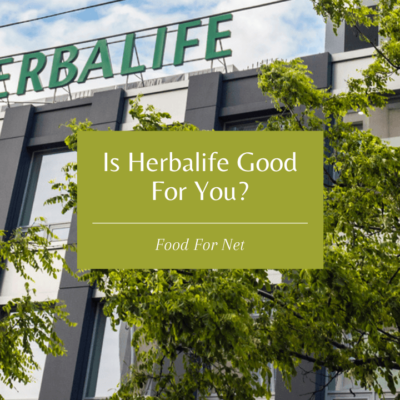
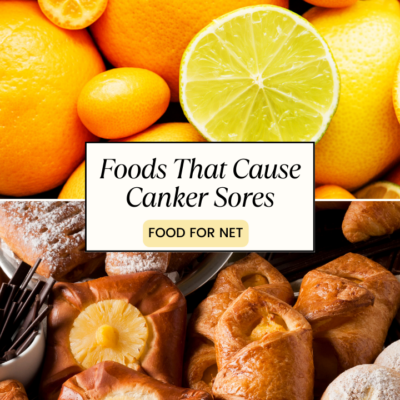

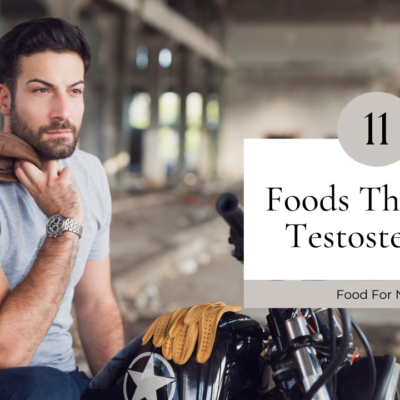


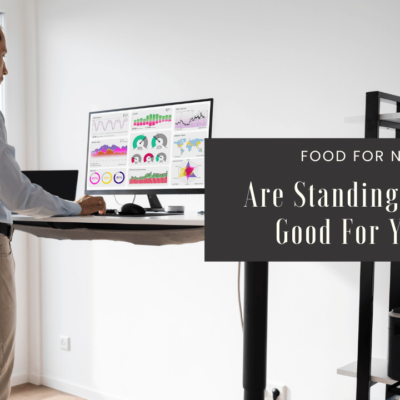

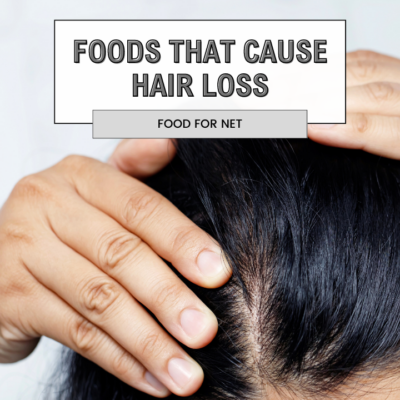




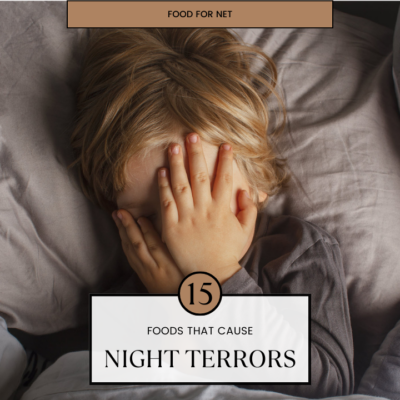


 How To Propagate Rosemary From Cuttings
How To Propagate Rosemary From Cuttings
Leave a Reply